The common misconception that oral health is not interlinked with overall health is slowly being dispelled by dental professionals who continue to demonstrate its close relationship by providing extensive, groundbreaking research on the topic. In this interview, Dental Tribune International spoke with Dr Chris Vernazza, professor of oral health services at Newcastle University in the UK, about the persisting hurdles to including oral healthcare in universal health coverage and the recent initiatives to overcome these hurdles.
Prof. Vernazza, in March 2023, you participated in a round-table discussion organised by FDI on the barriers to and opportunities of integrating oral healthcare into primary healthcare. Could you talk us through some of the main takeaways of the discussion?
One of the main things that struck me in our discussions was that, although we had a very diverse group from countries with different oral health systems, the challenges and some of the potential solutions were quite uniform for us all, although with some local contexts and nuances. The second point that came through strongly was that we have a real window of opportunity because both the concept of universal health coverage and the profile of oral health are high on the international and national policy agendas. Finally, it was clear that the issues and solutions are complex and multifaceted, including both the oral health and wider workforce, the role of the private sector, the information we collect and hold, the way services are delivered, the financing of oral health services and the priority of oral health in policy and financial agendas. However, we heard about many great examples where these issues had been dealt with, leading to positive improvements for patients in access and their oral health.
As a result of the round-table discussion, FDI released an advocacy white paper that includes a practical guide on steps that need to be taken to expand access to oral care worldwide. What are some of these steps?
The first steps include better advocacy at all levels for the importance of oral health and access to primary oral healthcare. FDI has prepared an advocacy toolkit to help with this, and I will be chairing an Alliance for a Cavity-Free Future session on the topic at the 2023 FDI World Dental Congress.
Beyond this, we need to share good practice in terms of innovative workforce solutions, including interprofessional practice, and to encourage rural practice. We need to provide good training in oral healthcare for non-oral health professionals. We also need to ensure that we learn from existing examples of integration of oral healthcare into wider primary healthcare, to investigate how to best reward dental teams to incentivise the best care and to set up co-payment systems for patients that minimise barriers to access.
“The concept of universal health coverage and the profile of oral health are high on the international and national policy agendas”
What are some of the barriers to integrating oral healthcare into universal healthcare?
The key barrier is that, historically, oral health has been separated from the rest of health. This is evident in the way we train healthcare professionals, how dental services are financed, where dental services are provided and how patients access oral health services. This means that there are barriers at multiple levels in terms of national policy and regional implementation and at individual patient and healthcare professional level. Overcoming these barriers is not impossible, but does require action and advocacy at multiple levels and with many stakeholders.
You will be moderating the World Oral Health Forum at the FDI congress. What can attendees expect from the session?
I am really excited to be chairing this busy session. The forum will take the topic of universal oral health coverage that we discussed at the round table and look at some really practical examples of good practice from around the world, including Thailand, Jamaica, India and Australia. We will also look at how the latest developments at the World Health Organization and the action plan for oral health can be leveraged at national level to make real progress on oral health. I think it will be a session focused on action, which is absolutely what we need now!
Editorial note:
Prof. Chris Vernazza will be moderating the World Oral Health Forum session, titled “Achieving universal oral health coverage by 2030”, which will be held on 26 September from 10:00 to 12:30. He is also a speaker at the symposium, titled “Annual alliance for a cavity-free future global summit”, which will be held on 26 September from 14:00 to 16:30. More information about the 2023 FDI World Dental Congress can be found here.
Tags:
As the elderly population continues to grow exponentially, it is now more important than ever to address certain challenges related to the oral and overall ...
Over the last five years, FDI has been developing resources to assist dental professionals in the planning and delivery of care for partially dentate ...
The countdown is finally over. Four years after its last in-person event, the FDI World Dental Congress is making a return. Dental Tribune International ...
SYDNEY, Australia: Organised annually by FDI World Dental Federation, the World Dental Congress is one of the most prestigious continuing education events ...
SYDNEY, Australia: This year’s FDI World Dental Congress is going to be one of the premier global dental events of the year, not only bringing the dental ...
Celebrated every year on 20 March, World Oral Health Day (WOHD) is the largest global awareness campaign on oral health. The WOHD task team oversees the ...
SYDNEY, Australia: To engage with aspiring dental professionals and students, FDI has launched the Young Dentists Forum, and the inaugural session will be ...
Dr. Zoe Brookes, Prof. Colman McGrath, Prof. Michael McCullough
Prof. Ihsane Ben Yahya, Dr. Astrid Czock, Dr. Patsy Yates, Prof. Jon Snaedal, Prof. Alessandro Villa
Ass. Prof. Ahmed Elsharkawy



 Austria / Österreich
Austria / Österreich
 Bosnia and Herzegovina / Босна и Херцеговина
Bosnia and Herzegovina / Босна и Херцеговина
 Bulgaria / България
Bulgaria / България
 Croatia / Hrvatska
Croatia / Hrvatska
 Czech Republic & Slovakia / Česká republika & Slovensko
Czech Republic & Slovakia / Česká republika & Slovensko
 France / France
France / France
 Germany / Deutschland
Germany / Deutschland
 Greece / ΕΛΛΑΔΑ
Greece / ΕΛΛΑΔΑ
 Italy / Italia
Italy / Italia
 Netherlands / Nederland
Netherlands / Nederland
 Nordic / Nordic
Nordic / Nordic
 Poland / Polska
Poland / Polska
 Portugal / Portugal
Portugal / Portugal
 Romania & Moldova / România & Moldova
Romania & Moldova / România & Moldova
 Slovenia / Slovenija
Slovenia / Slovenija
 Serbia & Montenegro / Србија и Црна Гора
Serbia & Montenegro / Србија и Црна Гора
 Spain / España
Spain / España
 Switzerland / Schweiz
Switzerland / Schweiz
 Turkey / Türkiye
Turkey / Türkiye
 UK & Ireland / UK & Ireland
UK & Ireland / UK & Ireland
 Brazil / Brasil
Brazil / Brasil
 Canada / Canada
Canada / Canada
 Latin America / Latinoamérica
Latin America / Latinoamérica
 USA / USA
USA / USA
 China / 中国
China / 中国
 India / भारत गणराज्य
India / भारत गणराज्य
 Japan / 日本
Japan / 日本
 Pakistan / Pākistān
Pakistan / Pākistān
 Vietnam / Việt Nam
Vietnam / Việt Nam
 ASEAN / ASEAN
ASEAN / ASEAN
 Israel / מְדִינַת יִשְׂרָאֵל
Israel / מְדִינַת יִשְׂרָאֵל
 Algeria, Morocco & Tunisia / الجزائر والمغرب وتونس
Algeria, Morocco & Tunisia / الجزائر والمغرب وتونس
 Middle East / Middle East
Middle East / Middle East
:sharpen(level=0):output(format=jpeg)/up/dt/2024/04/Shutterstock_1017664873.jpg)
:sharpen(level=0):output(format=jpeg)/up/dt/2024/04/Treating-periodontal-disease-reduces-atrial-fibrillation-recurrence.jpg)
:sharpen(level=0):output(format=jpeg)/up/dt/2024/04/3Shape-charts-sustainable-course-with-release-of-comprehensive-sustainability-report-2023.jpg)
:sharpen(level=0):output(format=jpeg)/up/dt/2024/04/Zumax-Medical-Image-1.jpg)
:sharpen(level=0):output(format=jpeg)/up/dt/2024/04/IDEM-2024-Wraps-up-its-13th-edition-with-record-breaking-success.jpg)








:sharpen(level=0):output(format=png)/up/dt/2013/03/LM-Dental.png)
:sharpen(level=0):output(format=png)/up/dt/2021/02/logo-gc-int.png)
:sharpen(level=0):output(format=png)/up/dt/2023/11/Patent%E2%84%A2-Implants-_-Zircon-Medical.png)
:sharpen(level=0):output(format=png)/up/dt/2014/02/EMS.png)
:sharpen(level=0):output(format=png)/up/dt/2014/02/kuraray.png)
:sharpen(level=0):output(format=png)/up/dt/2022/06/RS_logo-2024.png)
:sharpen(level=0):output(format=png)/up/dt/2011/07/fdi.png)
:sharpen(level=0):output(format=jpeg)/up/dt/2023/09/Historically-oral-health-has-been-separated-from-the-rest-of-health-.jpg)
:sharpen(level=0):output(format=jpeg)/up/dt/2024/03/profile-image-300x300.jpg)
:sharpen(level=0):output(format=jpeg)/up/dt/2023/09/Maintaining-good-dental-and-oral-health-is-crucial-for-lifelong-quality-of-life.jpg)
:sharpen(level=0):output(format=jpeg)/up/dt/2023/09/Proper-resources-and-evidence-based-practices-are-crucial-for-providing-high-quality-dental-care-.jpg)
:sharpen(level=0):output(format=jpeg)/up/dt/2023/09/FDI-Sydney-2023_11.jpg)
:sharpen(level=0):output(format=jpeg)/up/dt/2023/09/FDI-to-welcome-the-world-of-dentistry-to-Australia_1-1.jpg)
:sharpen(level=0):output(format=jpeg)/up/dt/2023/09/FDI-2023-Latest-industry-trends-and-expansive-networking-opportunities.jpg)
:sharpen(level=0):output(format=jpeg)/up/dt/2023/09/New-strategy-for-WOHD-to-be-revealed-at-World-Dental-Congress-.jpg)
:sharpen(level=0):output(format=jpeg)/up/dt/2023/09/FDIs-Young-Dentists-Forum-empowers-future-leaders-in-dentistry.jpg)


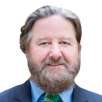
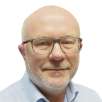
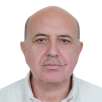
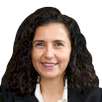


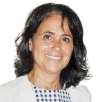



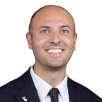
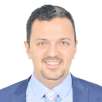
:sharpen(level=0):output(format=jpeg)/up/dt/2024/03/Shutterstock_1940444479.jpg)
:sharpen(level=0):output(format=jpeg)/up/dt/2024/01/New-journal-supplement-explores-the-role-of-mouthwash-in-oral-care.jpg)
:sharpen(level=0):output(format=jpeg)/up/dt/2023/09/FDIWDC23.jpg)
:sharpen(level=0):output(format=jpeg)/wp-content/themes/dt/images/3dprinting-banner.jpg)
:sharpen(level=0):output(format=jpeg)/wp-content/themes/dt/images/aligners-banner.jpg)
:sharpen(level=0):output(format=jpeg)/wp-content/themes/dt/images/covid-banner.jpg)
:sharpen(level=0):output(format=jpeg)/wp-content/themes/dt/images/roots-banner-2024.jpg)
To post a reply please login or register